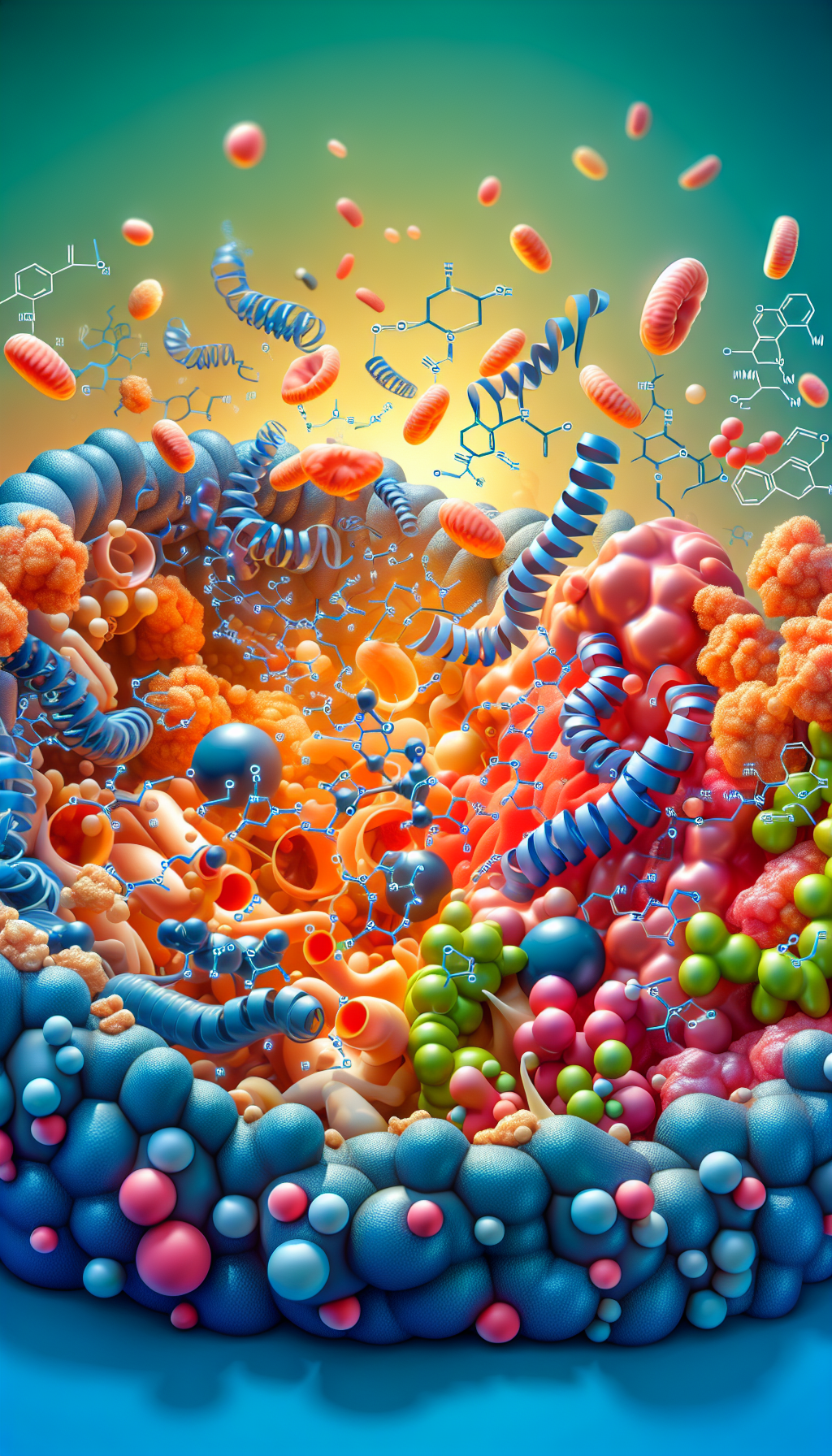Enzymes are the unsung heroes within our bodies, conducting vital biochemical reactions that affect everything from digestion to DNA replication. In the realm of health supplements, enzymes play a critical role in determining how effectively these products can support our nutritional needs and overall well-being. This article delves into the intricate relationship between enzymes and supplements, shedding light on how they work together to enhance health outcomes.
The Vital Role of Enzymes in the Human Body
Before we explore the intersection of enzymes and supplements, it’s essential to understand the fundamental role enzymes play in our health. Enzymes are biological catalysts that speed up chemical reactions in the body without being consumed in the process. They are critical for digestion, metabolism, and a myriad of other physiological functions.
Without enzymes, the complex reactions necessary for maintaining life would occur too slowly to sustain human life. From breaking down the food we eat into absorbable nutrients to repairing tissue and generating energy at a cellular level, enzymes are indispensable.
How Enzymes Enhance Supplement Absorption and Effectiveness
When it comes to dietary supplements, enzymes can significantly affect their bioavailability—the extent and rate at which the active ingredients are absorbed and become available at the intended site of action. For instance, certain digestive enzymes are necessary to break down complex molecules found in supplements, such as proteins, fats, and carbohydrates, into smaller, more easily absorbed components.
One example is protease, an enzyme that breaks down proteins into amino acids. If a supplement contains protein and the body lacks adequate protease levels, the protein may not be fully digested, leading to lower absorption and effectiveness.
For more insight into the role of enzymes in our overall well-being, readers may find Avix Health’s article on digestive health an invaluable resource.
Specific Enzymes and Their Role in Supplement Metabolism
There are several types of enzymes that interact with different kinds of supplements:
- Proteases break down proteins into peptides and amino acids.
- Lipases help in the digestion of fats into fatty acids and glycerol.
- Amylases convert carbohydrates into simple sugars like glucose.
- Lactase breaks down lactose, the sugar found in milk, which many people have difficulty digesting.
These enzymes ensure that the active ingredients in supplements are effectively metabolized, thus enhancing their benefits. For instance, lactase supplements can help those with lactose intolerance enjoy dairy products by aiding in the digestion of lactose.
Enzyme Deficiencies and Their Impact on Health
Enzyme deficiencies, whether due to genetics, illness, or age-related decline, can significantly affect the body’s ability to process and benefit from both nutrients in food and ingredients in supplements. Conditions such as lactose intolerance or pancreatic insufficiency can lead to a lack of digestive enzymes, resulting in malabsorption and gastrointestinal symptoms.
Incorporating enzyme supplements or enzyme-rich foods into one’s diet can help alleviate these deficiencies. For example, bromelain and papain, found in pineapples and papayas respectively, are proteolytic enzymes that can aid in protein digestion.
Relevant information on enzyme deficiencies and their management can be found in various resources, such as academic medical journals or specialized health platforms. One such resource is The National Pancreas Foundation, which offers extensive information on pancreatic enzyme insufficiency and treatment options.
Combining Enzymes with Other Supplements
Combining enzymes with other supplements can sometimes enhance the effectiveness of the latter. For example, when taken with a meal, digestive enzymes can improve the absorption of nutrients from both the food and any accompanying supplements. However, care must be taken to ensure compatibility, as some enzymes can interfere with the intended action of certain medications or supplements.
To deepen your understanding of how supplements can interplay with each other, Avix Health’s article on medication interactions provides a comprehensive look into potential synergies and conflicts.
Advanced Enzyme Supplementation
In the realm of advanced supplementation, systemic enzyme therapy is gaining traction. These enzymes work throughout the body, not just in the digestive system, supporting processes such as inflammation control and blood cleansing. For those interested in systemic enzyme therapy, this represents a frontier in supplement science, with many ongoing studies and emerging data.
For further reading on the cutting-edge advancements in supplement science, readers may explore resources like The Journal of Nutrition, which offers peer-reviewed articles on nutritional science and its implications for health and disease management.
Enzyme Stability and Supplement Storage
The effectiveness of enzyme supplements can be affected by how they are stored. Enzymes are sensitive to environmental factors such as temperature, pH, and moisture. Improper storage can lead to enzyme denaturation, rendering the supplement less effective or even ineffective. It’s crucial to follow storage instructions closely to maintain the integrity of these supplements.
When considering the storage and handling of supplements, Avix Health’s guide on storing supplements offers practical advice to ensure optimal potency and safety.
Research and Quality Assurance in Enzyme Supplements
As the demand for enzyme supplements grows, so does the need for rigorous research and quality assurance. It’s essential to select products from reputable manufacturers that provide clear information about enzyme activity levels and sourcing. Third-party testing and certification by organizations like NSF International or the United States Pharmacopeia (USP) can provide an added layer of trust.
For those seeking to dive deeper into the science of enzyme activity and supplement quality, resources such as The United States Pharmacopeia offer comprehensive standards and guidelines for manufacturers and healthcare professionals.
Conclusion
Enzymes are pivotal in maximizing the benefits of supplements, from aiding digestion to ensuring proper nutrient absorption. A deeper understanding of how enzymes interact with supplements can help individuals make informed decisions about their health regimens. By selecting high-quality products, storing them properly, and being mindful of enzyme interactions, people can significantly enhance the effectiveness of their supplements and, consequently, their health outcomes.
As the field of enzyme supplementation continues to evolve, staying informed through reliable resources and ongoing education is key to optimizing health and wellness through these powerful biological catalysts.



